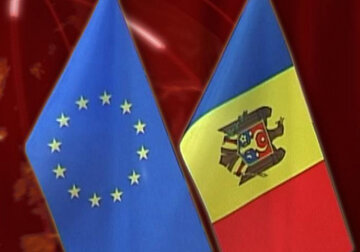
European Commission: Moldova continues to meet the criteria for the liberalization of the visa regime with the EU, therefore, a visa-free regime with the Schengen countries remains for the citizens of the country.
This is stated in the published the 4th report of the European Commission on the mechanism of visa-free regime in the European Union. The report contains a comprehensive and detailed assessment of the level of compliance in 2020 with the criteria that served as the basis for the abolition of the visa regime by the European Union for the countries of the Western Balkans and the Eastern Partnership (Albania, Bosnia and Herzegovina, Montenegro, North Macedonia, Serbia, Georgia, Moldova and Ukraine), and also contains a number of recommendations for each state. With regard to Moldova, the European Commission recommends continuing to adapt information campaigns on visa-free travel to the respective profiles of migrants (this concerns vulnerable groups, overdue stays and unfounded asylum applications). It is necessary to approve a strategy for reforming the justice system and an action plan for its implementation; amend the Constitution regarding the judiciary, as recommended by the Venice Commission. A process for appointing judges should also be ensured through merit-based transparent selection, including well-reasoned and denied appointments and appointments, based on criteria of competence and integrity of candidates. A separate set of recommendations concerns the continuation of efforts to combat corruption. The European Commission pointed out the importance of introducing a system for declaring property and the interests of high-ranking officials; on the need for an institutional separation of the competences of anti-corruption agencies so that the Anti-Corruption Prosecutor's Office deals with high-level corruption cases. The Moldovan authorities should intensify efforts to prevent and combat money laundering. To do this, it is necessary to approve a number of regulations allowing the implementation of the Law on Sanctions for Violations in the Field of Preventing Money Laundering; make progress in investigating major money laundering schemes; ensure the harmonization of national legislation in the field of preventing and combating money laundering and terrorist financing with the European one. Efforts to tackle banking fraud should also be intensified by updating fraudulent asset recovery strategies, establishing a new stolen funds recovery mechanism, and completing a bank fraud investigation in 2014 to bring all those responsible to justice and recover the misappropriated funds. In addition, the European Commission for the first time included in the list of specific recommendations a call to bring its visa policy in line with the List of third countries whose citizens must have visas to cross the external borders of the EU states, in particular, in relation to third countries that pose a risk of illegal migration or a threat to security for the European Union. Until now, this call has been met in general terms in the "Conclusions" section of the reports of the European Commission for 2018-2019. The EC report notes that the restrictions associated with the coronavirus pandemic have had a serious impact on mobility in the EU, and the countries of the Western Balkans and the Eastern Partnership enjoying the visa-free regime should continue and intensify their efforts to manage migration and asylum, as well as in the fight against corruption and organized crime. According to MFAEI, 2.37 million Moldovan citizens with biometric passports have used visa-free travel to the EU for 7 years. They have made more than 9.1 million trips to the EU countries. // 05.08.2021 – InfoMarket.






